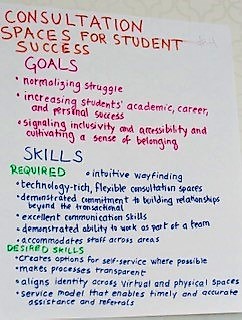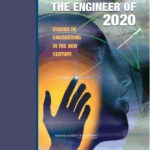questions that matter:
III. How Can We Capitalize on Relevant National Reports Advance Our Planning?
The LSC Guide to questions that matter began with questions about questions, then with questions about learners. This third question is about how campuses can capitalize on the wisdom—from research and practice—that can be found in national reports. Collectively these reports can inform and enrich discussions at all stages of the planning process. They provide a platform for engaging colleagues across the campus and beyond.
Another critical national resource for planners is the collective of practical experience resident in the communities of peers to which academics belong. These are opportunities to share emerging lessons learned about transforming learning environments and explore new questions about shaping the future. In December, the LSC collaborated with CNI (Coalition for Networked Information) in a four-hour Roundtable focusing on Job Descriptions for Spaces within a 21st Century Library.

_______________________________________________
QUESTIONS THAT MATTER:
II. HAVE WE PUT THE LEARNER/USER AT THE CENTER OF OUR PLANNING?
The questions around which the LSC Guide: questions that matter are not questions to be addressed in a linear fashion—once addressed and then the planning moves forward. This is particularly the case when the questions are about students, when initial responses keep circling back to the initial questions about what students are to become. At the conclusion of the seminal report, The Engineer of 2020, in which are clear expectations of what we want our learners to become and be able to do upon graduation.
Given the uncertain and changing character of the world in which 2020 engineers will work, engineers will need something that cannot be described in a single word. It involves dynamism, agility, resilience, and flexibility. Not only will technology change quickly, the social-political-economic world in which engineers work will change continuously. In this context it will not be this or that particular knowledge that engineers will need but rather the ability to learn new things quickly and the ability to apply knowledge to new problems and new contexts. What attributes will the engineer of 2020 have? He or she will aspire to have the ingenuity of Lillian Gilbreth, the problem-solving capabilities of Gordon Moore, the scientific insight of Albert Einstein, the creativity of Pablo Picasso, the determination of the Wright brothers, the leadership abilities of Bill Gates, the conscience of Eleanor Roosevelt, the vision of Martin Luther King, and the curiosity and wonder of our grandchildren.

_______________________________________________
